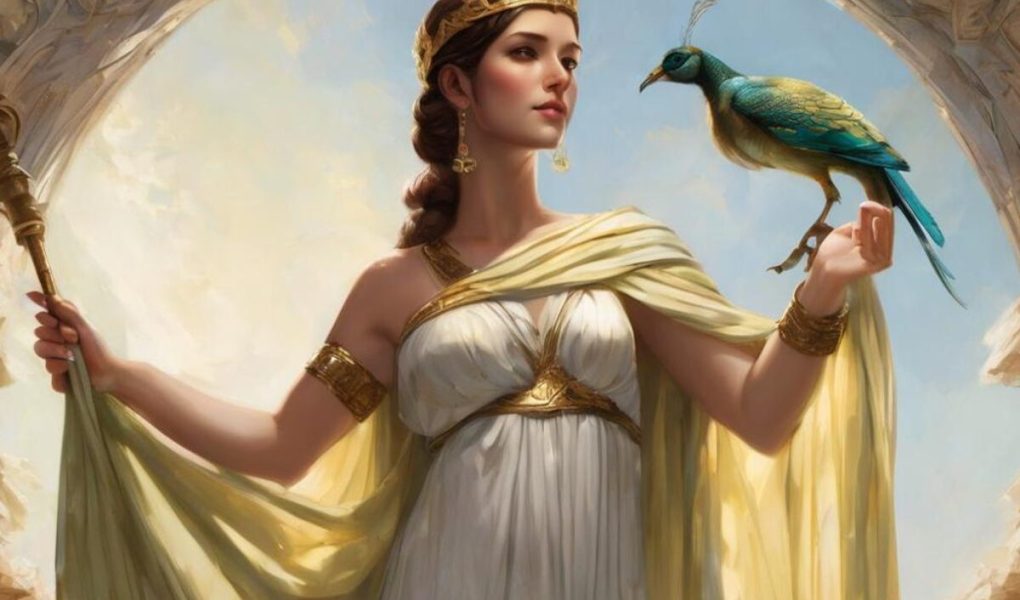lettersforvivian.org – In the rich tapestry of Greek mythology, Hera stands as a figure of unparalleled majesty and complexity. Known as the wife and sister of Zeus, the king of the gods, Hera’s role extends far beyond that of a mere consort. She is the goddess of marriage, childbirth, and women, embodying the virtues and the wrath that these domains entail. This article delves into the myths and attributes of Hera, exploring her significance in ancient Greek culture and her enduring legacy.
The Divine Lineage and Marriage of Hera
Hera was born to the Titans Cronus and Rhea, making her one of the six siblings who would overthrow their father and take control of the cosmos. Among her brothers and sisters were Zeus, Poseidon, Hades, Demeter, and Hestia. Despite the incestuous nature of their union, Hera’s marriage to Zeus was celebrated with great pomp and circumstance, and it was said to have lasted for 300 years, symbolizing the eternal bond between the divine couple.
Hera’s Domains: Marriage, Childbirth, and Women
As the goddess of marriage, Hera was the protector of the institution, ensuring the fidelity and happiness of married couples. However, her own marital woes, stemming from Zeus’s notorious infidelity, often led to her wrath being directed at his lovers and illegitimate children rather than Zeus himself. This paradoxical nature of Hera—both nurturing and vengeful—reflects the complexities of marriage and the emotions it entails.
In her role as the goddess of childbirth, Hera was invoked by women in labor, symbolizing the pain and joy of bringing new life into the world. Additionally, Hera was the patron of women, overseeing their rights and welfare, which made her one of the most revered deities among the ancient Greek populace.
Myths and Legends of Hera
Hera’s mythology is replete with tales that showcase her strength, jealousy, and maternal instincts. One of the most famous stories involves her relentless pursuit of Heracles (Hercules), the son of Zeus and Alcmene. Despite initially hindering his journey, Hera’s respect for Heracles’s valor and achievements eventually led her to accept him, even offering her daughter Hebe’s hand in marriage.
Another notable myth is the birth of Hephaestus, Hera’s only child by Zeus. According to some versions, Hera conceived Hephaestus alone, symbolizing her independence and divine power. Hephaestus, the god of fire and craftsmanship, was thrown off Mount Olympus by Hera or Zeus due to his physical deformity, highlighting the complex dynamics within the divine family.
The Cult of Hera
Hera’s worship was widespread across ancient Greece, with numerous temples and festivals dedicated to her. The Heraea, held in her honor in Olympia, was one of the few sporting events in ancient Greece where women could compete, showcasing her influence and the respect she commanded.
Conclusion
Hera, the Queen of the Gods, embodies the multifaceted nature of womanhood and the complexities of marriage and motherhood. Her myths and attributes reflect the struggles and triumphs of the human condition, making her a relatable and revered figure in Greek mythology. Through her, we can explore the intricate web of relationships, emotions, and societal norms that have shaped human civilization. Hera’s legacy is a testament to the enduring power of mythology to illuminate the human experience.


